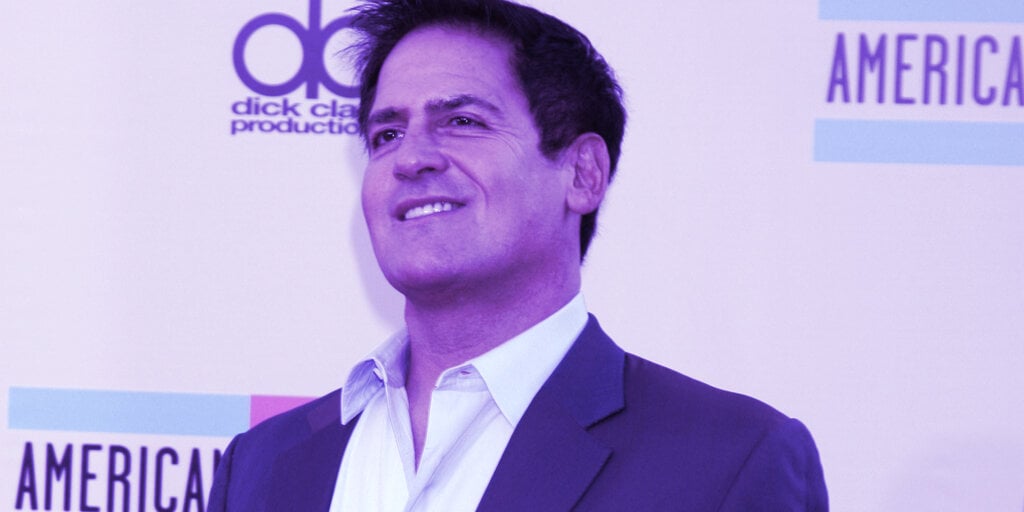
Billionaire investor Mark Cuban is increasingly wading into the crypto sphere. The Dallas Mavericks owner has been selling nonfungible tokens (NFTs), referencing his Coinbase holdings, and now he’s talking up the benefits of decentralized finance.
In a tweet thread on the GameStop (ticker: GME) buying spree via stock trading app Robinhood, Cuban made the case for decentralized finance, the suite of blockchain-based applications that remove some intermediaries from the process of lending and trading, by pointing out that Robinhood’s business model takes fees that in DeFi would otherwise go to the user.
“When someone shorts a stock that is already heavily shorted, they have to pay a fee to borrow that stock. In the case of $GME that fee has been hovering around 30% this week,” Cuban wrote. “Shorts have to pay (Price x .30)/360 per day. In DeFi that’s a 30% APY.”
For RH Traders that own $GME that money, as best I can tell, is held in street name. Which means that 30% APR goes 100pct to @RobinhoodApp
. Imagine if you pooled your crypto and the platform was getting 30% APY and didnt pay all but fees to you ? What would happen ?
— Mark Cuban (@mcuban) January 29, 2021
To understand Cuban’s point, it’s necessary to get into the weeds a bit.
Sten Laureyssens, a strategic advisor with the blockchain-focused Waves Association, explained to Decrypt that when users buy a stock on Robinhood, the broker (Robinhood) actually holds the shares on behalf of the customer. And if it holds the stock, it can loan it out to short-sellers, people that anticipate the price falling so they can buy it back for less and pocket the difference. And Robinhood did loan it out. A lot.
Borrowing a stock is different than buying it, and comes with a fee—in this case the estimated aforementioned 30%. Who keeps that fee? Robinhood does!
“Robinhood is banking it from multiple angles here,” Laureyssens said.
“Imagine if you pooled your crypto and the platform was getting 30% APY and didn’t pay all but fees to you?” Cuban asked in his thread. “What would happen?”
Tom Bean, founder and CEO of crypto-based margin trading platform Fulcrum, told Decrypt: “In defi, shorting interest is not retained by the company whose product you are using. The entirety of interest paid by borrowers, less a small fee, goes to a decentralized group of lenders (on defi lending protocols like Compound, Fulcrum, Aave).”
In short, those fees being paid by the short-sellers would mostly go back to the users.
“This is one more way that Wall St takes advantage of the little guy,” Cuban wrote. “If you are moving from [Robinhood], look to see if you can find some place that allows you to hold the shares and lend them in YOUR name, so you get the Yield (Yield Farming in stocks!).”
That is—let users hold the actual asset.
Stock-based yield farming may not be a huge thing yet, but yield farming, getting rewards for the assets one lends out, is now standard practice among Ethereum-based DeFi protocols.
Bean is pleased to see traditional investors catching on. “It’s super exciting that defi and crypto is going mainstream and getting promoted by people like Mark Cuban and Elon Musk. Non-crypto people are learning of the advantages of using crypto and defi.”
